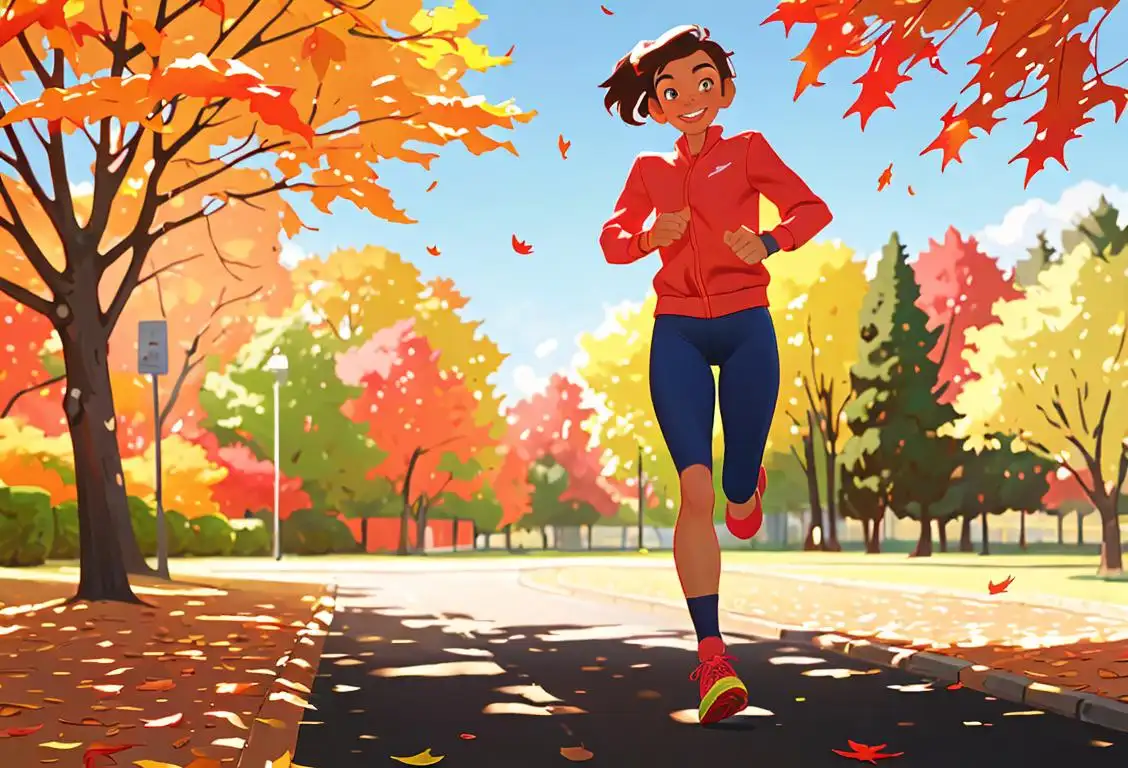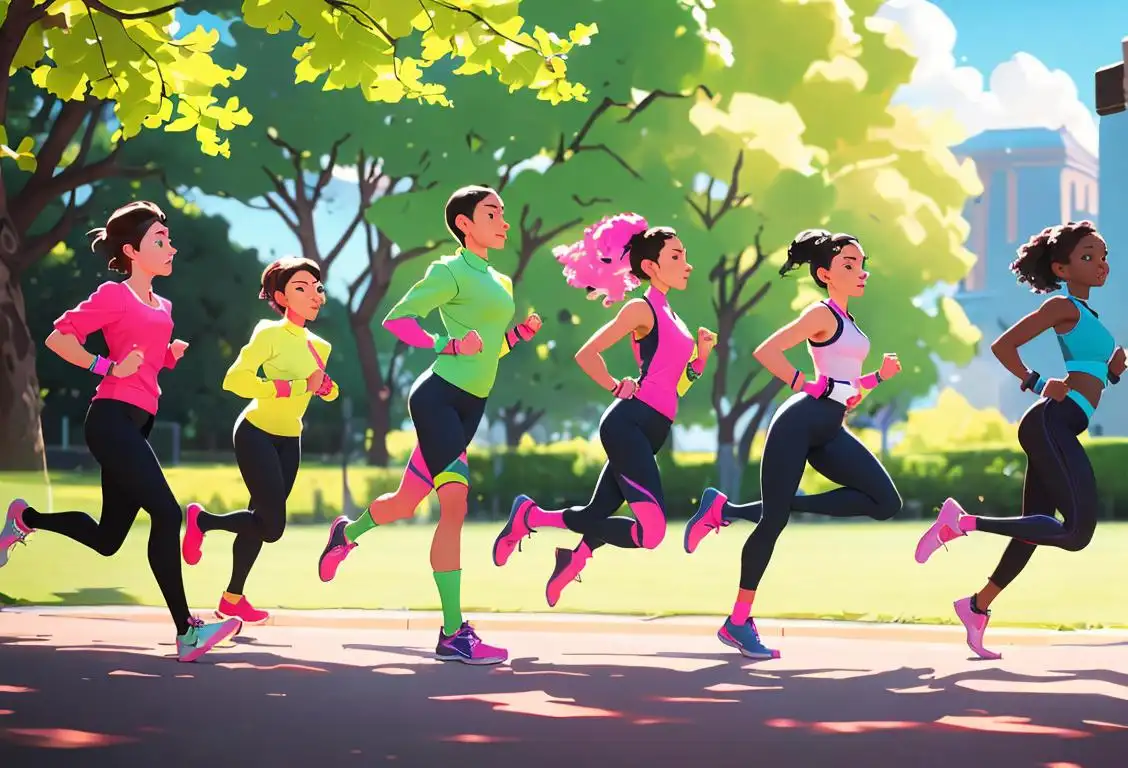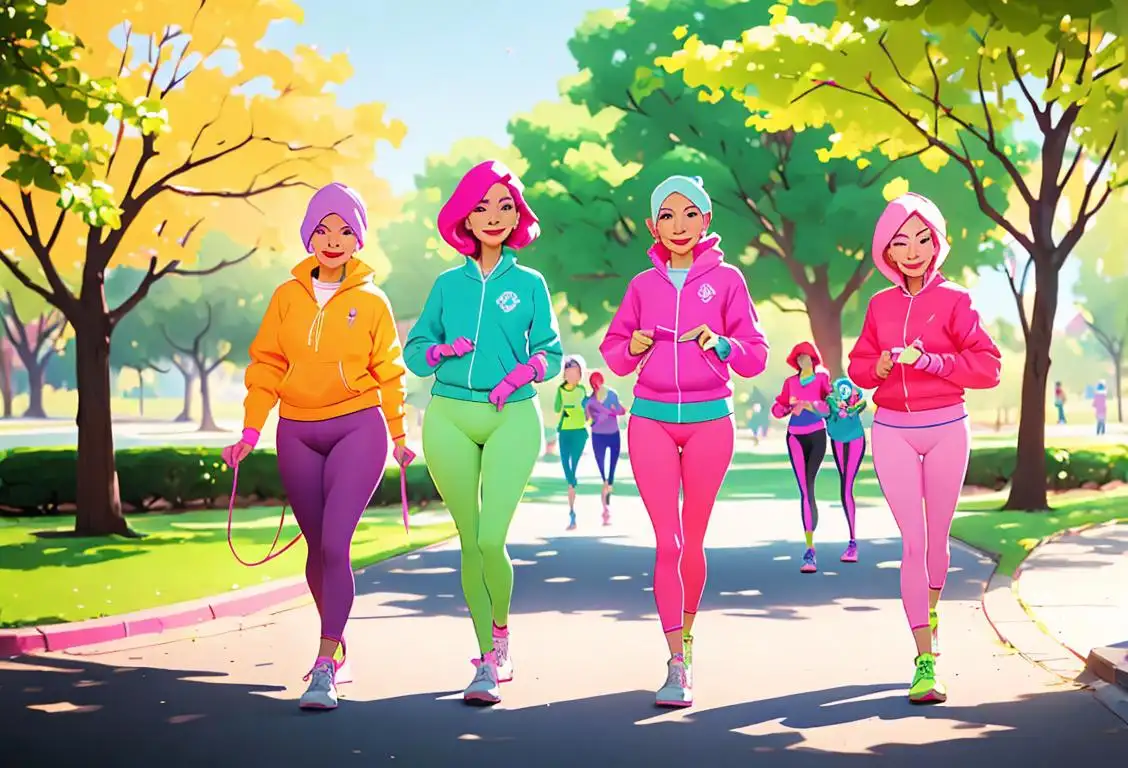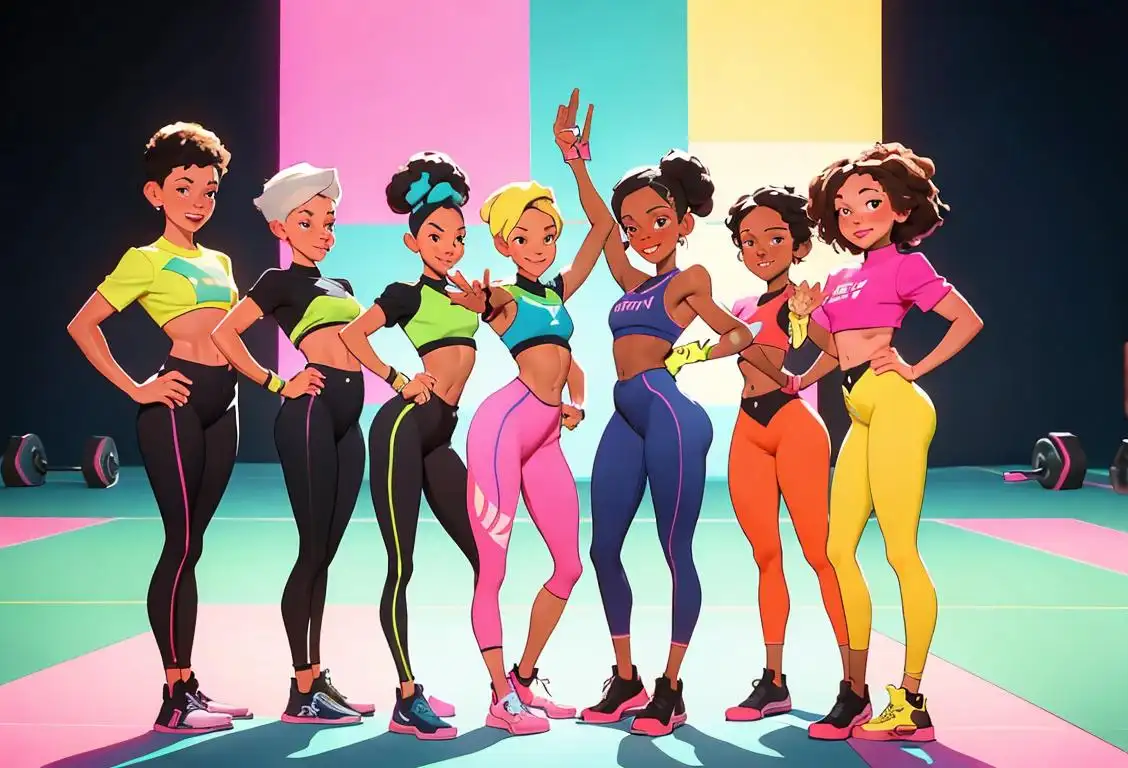National Run Day

Welcome to the wonderful world of National Run Day, where we celebrate the joy of putting one foot in front of the other at a slightly faster pace than walking! Lace up your sneakers and get ready to learn all about this energetic national day.
When is Run Day?
It's national run day on the 3rd June.
The Birth of National Run Day
Just like a runner training for a marathon, let's start at the beginning. The origins of National Run Day can be traced back to the running boom that swept the nation in the 1970s. As more and more people began embracing the sport of running for fitness and fun, the idea of dedicating a entire day to celebrate it gained momentum. And so, National Run Day was born!
Since its inception, National Run Day has grown in popularity and participation. It has become an occasion for runners of all levels to come together and show their love for pounding the pavement or hitting the trails.
How to Celebrate National Run Day
Now that you've laced up your running shoes and are ready to hit the road, let's talk about how to celebrate this special day. Whether you're a seasoned marathoner or just starting your running journey, there are plenty of ways to join in the fun:
- Organize a group run with your friends or running club.
- Take part in a local running event or race.
- Challenge yourself to run a new distance or set a personal record.
- Explore a new running route in your neighborhood or city.
- Support a charity run or use your run to raise funds for a cause you care about.
The Benefits of Running
Running isn't just about getting fit and burning calories. It offers a whole host of benefits for both the body and mind. Not convinced? Here are just a few reasons why running is awesome:
- Improves cardiovascular health.
- Boosts mood and reduces stress.
- Increases bone density.
- Helps with weight management.
- Strengthens muscles and joints.
So, whether you're running to stay in shape, clear your head, or chase after that PR (personal record), National Run Day is the perfect excuse to get out there and embrace your inner gazelle!
History behind the term 'Run'
800 AD
Origins in Old English
The term 'run' finds its origins in Old English where it was derived from the word 'rinnan' meaning 'to flow'. Back then, 'run' was primarily used to describe the act of liquid or water flowing swiftly in a stream or river.
13th Century
Evolution of Meaning
In the 13th century, the meaning of 'run' expanded beyond just the flow of water. It started to be used in reference to animals moving swiftly, specifically to describe the swift movement of animals such as horses, hounds, and deer. This broadened the scope of the term, making it applicable to various forms of movement.
16th Century
Connection to Human Movement
During the 16th century, the term 'run' started to be associated with human movement as well. It began to be used to describe the act of moving swiftly or at a fast pace on foot. This usage further expanded the concept of 'run' to include human locomotion, solidifying its place in everyday language.
19th Century
Sports and Racing
In the 19th century, 'run' became intimately connected with sports and racing. It became a prominent term used to describe competitive foot races and athletic events. The popularity of organized sports helped solidify 'run' as a term commonly associated with running and racing.
20th Century
Colloquial and Figurative Usage
As the 20th century dawned, the term 'run' continued to evolve and expand its usage. It started being widely used in colloquial language, often to describe a quick or hasty action. Additionally, 'run' also gained figurative meanings, such as 'to operate' (e.g., running a machine) or 'to manage' (e.g., running a business). These extended meanings enriched the versatility of 'run' in everyday communication.
Did you know?
Did you know that running a marathon can burn approximately 2,600 calories? That's like eating a whole pizza guilt-free! Just make sure to refuel with some healthy snacks after your run.Tagged
awareness fun sports healthFirst identified
3rd June 2015Most mentioned on
3rd June 2015Total mentions
514Other days
Fitness Day
Health And Fitness Day
Run Day
Yoga Day
Heart Valve Awareness Day
Cancer Prevention Day
Squat Day
Leg Day
Running Day
Walking Day








